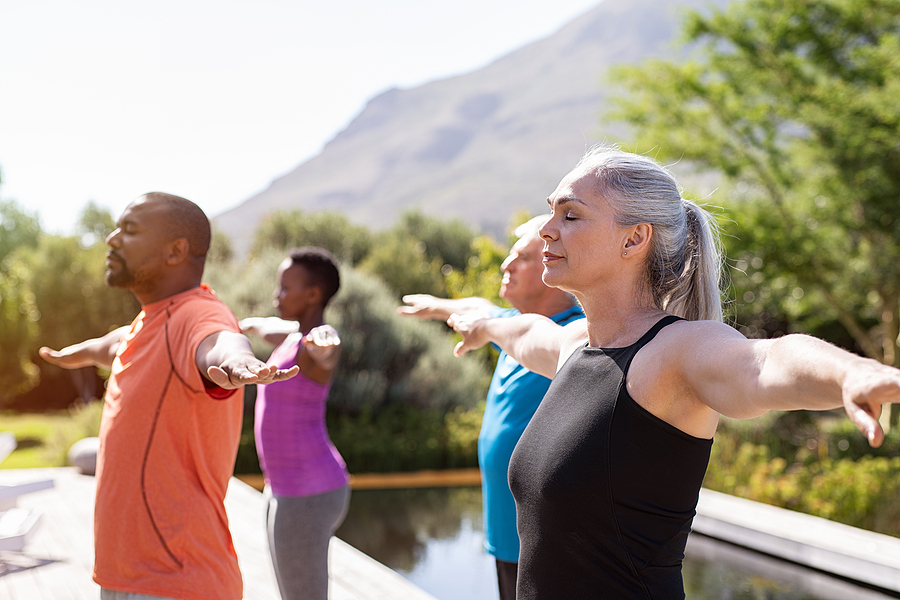Self-help ways to prevent osteoarthritis
Osteoarthritis typically takes a long time to develop so there is plenty of time to be proactive and learn how to control symptoms, enabling us to lead fuller lives.
What is osteoarthritis?
Occurring in the fingers, toes, knees, hips, base of thumb and spine osteoarthritis is the loss of cartilage (the protective surface over the end of the bone) leading to joints becoming swollen and painful. There is plenty that can be achieved at home to manage symptoms.
What is rheumatoid arthritis?
Unlike osteoarthritis, rheumatoid arthritis is an auto-immune disease. It also causes swelling, pain and stiffness in joints but can be managed well with drugs if caught early. Initial treatment for rheumatoid arthritis is with pain killers such as paracetamol or codeine alongside anti-inflammatories. Further treatment could be low dose steroids, hydroxychloroquine, or disease modifying drugs such as methotrexate, leflunomide and sulphasalazine.
How can symptoms of osteoarthritis be controlled?
An exercise programme can help to control symptoms. A physiotherapist may offer manipulation and stretching, and pain relief. ‘We want people to be empowered, so they can go away and be able to cope if they have a flare up. For instance, icing the joint, if it flares up helps to bring down swelling.’ explains AXA PPP healthcare Lead Physiotherapist, Jan Vickery.
Osteoarthritis can cause a vicious circle, particularly among the elderly. So, how can we help ourselves?
Ways to self-manage osteoarthritis
Posture – think about how you are holding your body. Are you sitting most of the day? How do you sleep at night? Yoga can be a good tool for discovering how you are putting strain on your body and changing your postural habits.
Footwear – consider your footwear. Shoes that absorb shock, such as trainers or running shoes, are great as they minimise impact on weight bearing joints such as hips, knees and ankles. Wearing high heels places enormous strain on your hips and knees.
Improve core stability – Pilates can help strengthen muscles in the tummy and buttocks which in turn protects the lower body.
Control your weight – being overweight puts huge strain on all your joints, but especially your hips, knees, ankles and feet.
A recent article in Arthritis Today explains, ”research shows losing as little as 11 pounds may improve joint health and cut the risk of osteoarthritis of the knee by 50 per cent.”
Exercise regularly – Exercise is essential for overall mental and physical health. It will also help strengthen muscles around joints.
Exercise slows down the effect of deterioration in joints due to ageing. Try low impact exercises such as cycling, rowing, brisk walking, dancing, yoga, t’ai chi, or even knitting! Any and all activity is great as it will help with dexterity, balance, will firm up muscles, ease stress and will keep the body supple.
Tips on exercising with arthritis
Supplements and other anecdotal self-help treatments
Many people who have a few early twinges, try supplements, such as glucosamine with chondoitrin, green lipped mussel, fish oils, and rosehip.
Although evidence is mixed, Jan Vickery admits that supplements such as rosehip and omega-3 fish oils may help pain, and glucosamine might slow down progress of osteoarthritis.
Anecdotal self-help treatments are:
- Turmeric, ginger, olives, green tea and grapes
- Taking cider vinegar in a glass of warm water each morning may ease symptoms
- A good soak in a hot bath will soothe joints and adding some Epsom sales may release toxins from the body
- Copper or magnet bracelets may have a positive effect on some people
- Avoiding acidic foods such as tomatoes, citrus fruit, red meat, potatoes, red wine, aubergines and strawberries.
Read about the health benefits of turmeric
Disclaimer
All content on Silversurfers.com is provided for general information only, and should not be treated at all as a substitute for the medical advice of your own doctor or any other health care professional. Silversurfers will not be responsible or liable for any diagnosis made by a user based on the content on www.silversurfers.com and we are also not liable for the content of any external websites or links from or to Silversurfers to any other websites. Please always consult your own doctor if you’re in any way concerned about any aspect of your health.
Melina - Assistant Editor
Latest posts by Melina - Assistant Editor (see all)
- Banana bread with SunGold kiwis - February 20, 2025
- A tribute to Bob Marley - February 4, 2025
- Going to Work on an Egg! - January 29, 2025
- The Very Best of Petula Clark - January 14, 2025
- 50 Years of Coat Trends - January 12, 2025




















